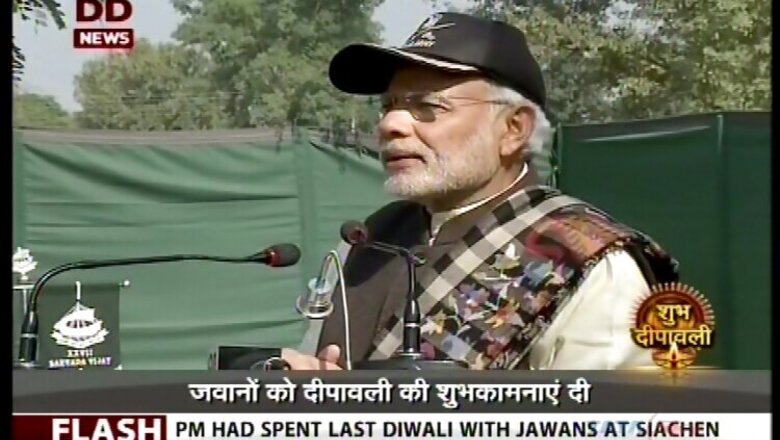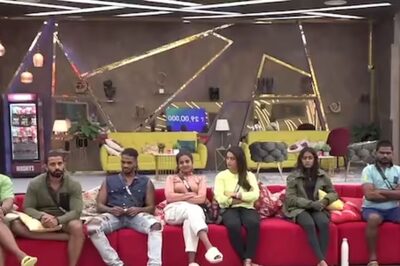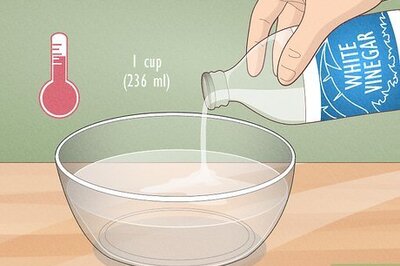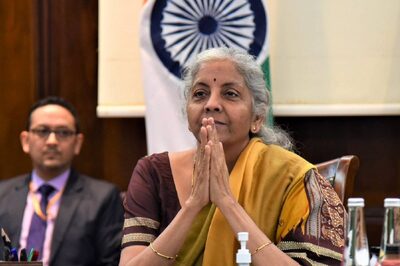
views
Pune: It was deja vu in Pune as the intensely fought polls for the 152-strong Pune Municipal Corporation (PMC) ultimately threw up a hung House with NCP once again emerging the single largest party bagging 51 seats and Raj Thackeray-led MNS coming second in the final tally with 29 seats, relegating Congress to a poor third.
But the poll arithmetic clearly indicated that both Congress and NCP are certain to join hands to capture power in PMC with their combined tally which gives them a majority. Congress won 28 seats.
The voting to elect a new general body of PMC was held on Thursday and counting of votes took place on Friday.
The results of the election, in which the Congress campaign was spearheaded by Maharashtra Chief Minister Prithviraj Chavan, came as a big blow for the party which remained on the defensive owing to the Suresh Kalmadi factor.
Congress candidates considered close to the tainted city MP, too, suffered defeat. They included Sangita Tiwari, Amit Bagul, Virendra Kirad and Deputy Mayor Prasanna Jagtap.
However, Avinash Bagve, son of former Maharashtra Minister Ramesh Bagve, a close associate of Kalmadi, was declared elected defeating Sandip Ladkat of NCP.
While MNS, in a surprise package, edged past Congress, for NCP, which fought the polls without an alliance with its coalition partner at the State and Centre, the outcome came as a disappointment in the absence of a clear majority which had eluded it in the last (2007) civic election also.
Short of the magic figure, NCP had then carved out the controversial "Pune Pattern" by joining hands with the Shiv Sena-BJP saffron alliance when the Kalmadi-led city Congress refused to support NCP whose affairs were managed by Ajit Pawar, a known detractor of Kalmadi.
The arrangement lasted for two-and-a-half years and ended at the time of 2009 general elections due to inherent contradictions.
The NCP campaign was led by Deputy Chief Minister Ajit Pawar, who was joined by party President and Union Minister Sharad Pawar in seeking an absolute majority for "development of Pune".
Their appeal went unheeded in the city, which has a host of civic problems, including deficient water supply, a dormant metro project, traffic woos, bad road conditions, inefficient public transport as well as high levels of air pollution.
The Opposition, in the form of a "Mahayuti" (grand alliance) forged by Shiv Sena-BJP-RPI, too failed to win the voters' support and the dark horse of MNS staged a spectacular show, improving manifold its tally of 7 in the outgoing House.
Mayor Mohansingh Rajpal (NCP) and his Deputy Prasanna Jagtap (Congress) both lost seats to their BJP rivals.
An accelerated political activity is now expected, in a repeat of the 2007 predicament, spurring hectic lobbying among parties to bargain and come to power in PMC.
This time, however, NCP and Congress can explore a power equation in the absence of Kalmadi, who stands suspended from the party. The combined strength of both the parties can muster a majority in the House.
Even though NCP and Congress indulged in acrimonious attacks on each other during the high pitch campaign, the Chief Minister had not ruled out a post-poll understanding with "like-minded parties" to keep "communal forces" out of power in PMC.
The final party position in the 152-seat Pune Municipal Corporation (PMC) was: NCP 51, MNS 29, Congress 28, BJP 26, Shiv Sena 15, RPI 2 and Independent 1.
In the neighbouring Pimpri-Chinchwad Municipal Corporation (PCMC), however, NCP retained its hold, securing an absolute majority by bagging 83 seats in the 128-member House. The MNS made its mark in PCMC also opening its account for the first time and winning four seats.



















Comments
0 comment